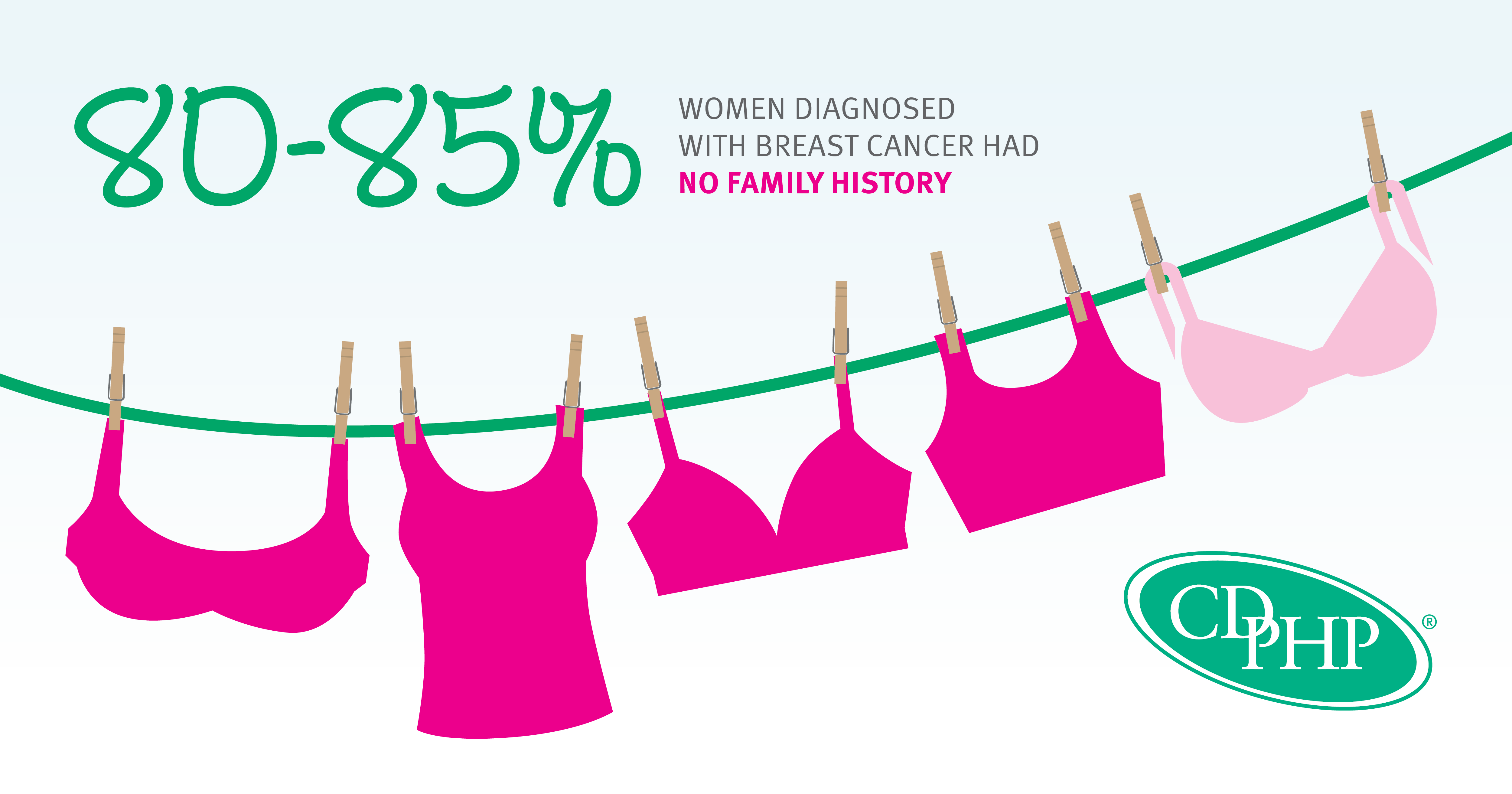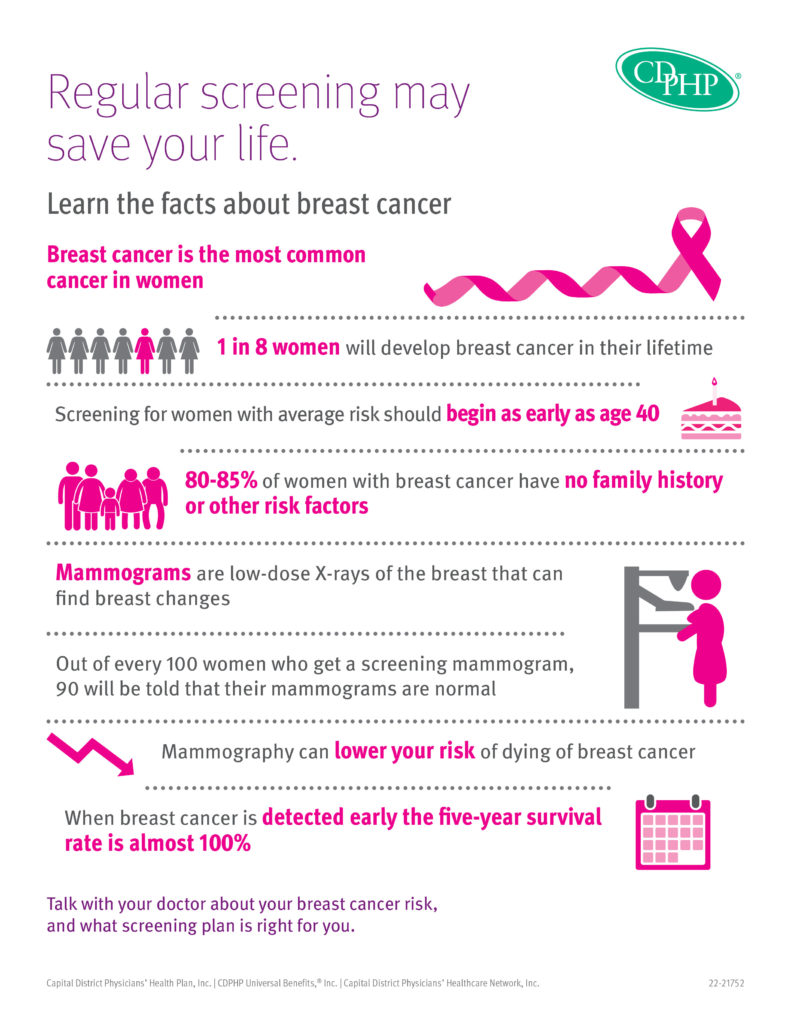Take a Look at Breast Cancer and Screening by the Numbers

Even if you are healthy and have no family history of breast cancer, it is important that you schedule a mammogram. The American Cancer Society reports that the vast majority of women who are diagnosed with breast cancer had no family history of the disease. That is to say these women were the first in their families to face a breast cancer diagnosis.
That’s why it is so important to be screened. Early detection gives women the best chance of successfully treating the disease.
Here are some more facts and statistics about breast cancer – by the numbers.
80-85% – The number of women diagnosed with breast cancer who had no family history of the disease. You could be at risk of developing breast cancer even if no one in your family has had it.
40-50 – The age range at which you should start getting screened. Talk to your doctor as he or she knows you and may want you to be screened as early as 40.
1 or 2 – Number of years between mammograms. Current guidelines suggest having a mammogram every one or two years, depending on your decision made between you and your physician.
10 percent – The percentage of women who are asked to come back for additional imaging or an ultrasound. If you are asked to come back for additional testing following your initial mammogram results, don’t panic. Extra imaging is sometimes needed to focus in on a certain area, just like when you zoom in on a picture to see it better.
2-D and 3-D – Types of mammography images. The current standard of care is a two-dimensional mammogram. Three-dimensional mammograms are FDA-approved but not necessary for every woman. Talk to your doctor about which imaging is right for you.
$0 – The amount you’ll likely pay for a mammogram. CDPHP health plans cover cancer screenings including mammograms. These no-cost preventive screenings can save lives.

If you have questions, if you are concerned about your mammogram results, or if the mammogram shows that you do have breast cancer, CDPHP can help. When you call our confidential line at 1-888-94-CDPHP (23747), your call will be returned by a specially trained nurse who is trained to help you navigate a new diagnosis. Whether you need help establishing social and emotional support systems or just need advice about finding an oncologist, CDPHP is here for you.
 The Daily Dose
The Daily Dose
Comments are closed.